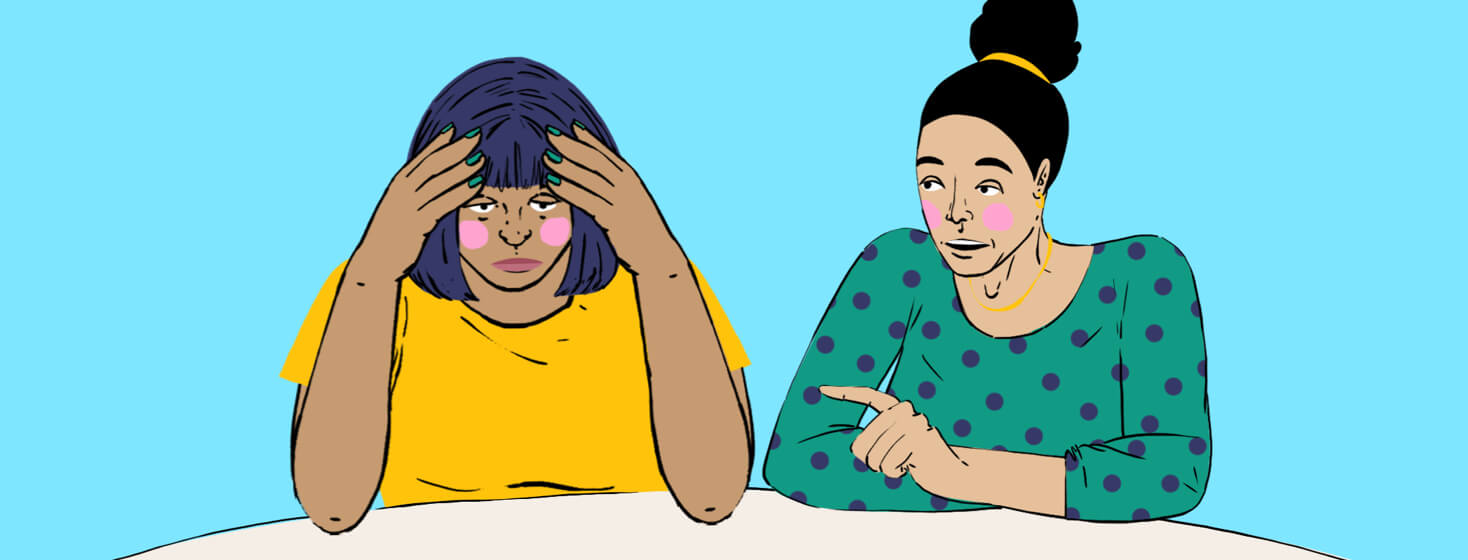5 Things Not to Say to Someone with Bipolar Disorder
I have been a professional mental health advocate for 14 years now, and I have a lot of experience hearing supportive and decidedly unsupportive utterances. While people rarely mean to insult those with bipolar disorder, saying the wrong thing can definitely do that.
Sometimes, insensitive remarks are due to prejudice and stigma, whereas other times, people just are not thinking about the impact of their words. No matter the cause, though, it's helpful to know what not to say to a person with bipolar disorder to be a more supportive and accepting person.
What not to say to someone with bipolar
"Everyone's a little bipolar."
No, they're not. People with bipolar disorder experience moods that are, by definition, at the far ends of the human experience. In fact, many of us live there almost full-time. This is not what the average person experiences.
If you think about a mood represented on a scale of 1 to 10, where 5 is content, most people live around a 4, with occasional dips into 3 and 7, when unusual things in life happen. This is not the experience of people with bipolar disorder. For me, I experience life at a 1 to 3. That's just where I am. When I'm hypomanic, I'm at an 8. I'm almost never at a 5 – ever. No, "everyone" is not like that, and "everyone" can't even identify with what that's like. "Everyone" does not have this life-threatening illness.
"You don't look bipolar."
Excuse me? And what does "bipolar" look like, exactly? Bipolar disorder can happen to anyone. It does not discriminate and is invisible.
If you mean, I don't look like a movie’s version of "crazy," then sure, if you say so. But why you are getting your perception of people with mental illness from the movies is beyond me.
"Pray more. God will save you."
I respect people's individual experiences of spirituality and religion. That being said, I would appreciate it if people would respect mine, and mine says that no god is interested in saving me, and there is no evidence to suggest that I'm wrong.
Extremely devout people get bipolar disorder, too. Bipolar disorder is not about having the right religion, it's about having the wrong brain.
"Oh, I have a friend with that. Yoga cured her."
I can't comment on your friend, but what I can say is that if yoga, juicing, praying, diet, exercise, or any other lifestyle variable "cured" her, she didn't have bipolar disorder. Bipolar disorder is a disorder of the brain, and it's lifelong. In my experience, almost everyone needs medication to manage this illness, along with therapy and various lifestyle changes, and even at that, it can be a huge daily challenge.
"Oh, what trauma did you experience? Were your parents really that bad?"
I appreciate that the person saying this is taking an interest and trying to be empathetic, but they're off the mark. The presence of bipolar disorder does not require a history of trauma or bad parenting. Some people have a great childhood and great parents and still end up with this serious mental illness.
"There are a lot of people worse off than you."
This is always 100% true. It's true for me, and it's true for you. It's also irrelevant. Bipolar disorder does not require your life to be bad – bipolar disorder requires your brain to be bad. You can absolutely appreciate all you have and still have bipolar disorder.
Knowing what to say to a person with bipolar disorder
People with bipolar disorder want what everyone wants: we want to feel seen and heard. We want our experiences to be validated. Try being gently inquisitive when you're dealing with someone with bipolar disorder.
It's important to remember that no matter what Hollywood has told you, you don't know about what a serious mental illness is like. Don't try to fix us. You can't. If nothing else, just be there, listen, and offer support.
